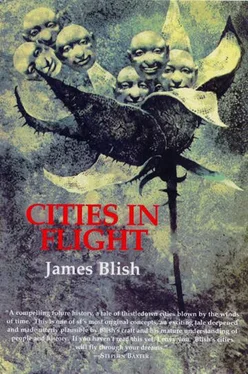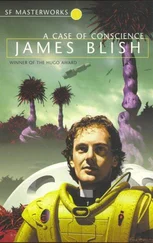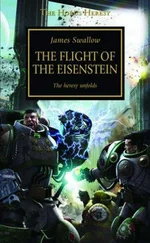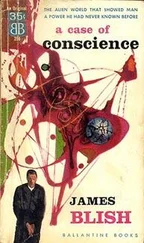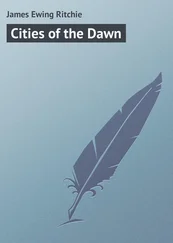James Blish - Cities in Flight
Здесь есть возможность читать онлайн «James Blish - Cities in Flight» весь текст электронной книги совершенно бесплатно (целиком полную версию без сокращений). В некоторых случаях можно слушать аудио, скачать через торрент в формате fb2 и присутствует краткое содержание. Жанр: Фантастика и фэнтези, на английском языке. Описание произведения, (предисловие) а так же отзывы посетителей доступны на портале библиотеки ЛибКат.
- Название:Cities in Flight
- Автор:
- Жанр:
- Год:неизвестен
- ISBN:нет данных
- Рейтинг книги:4 / 5. Голосов: 1
-
Избранное:Добавить в избранное
- Отзывы:
-
Ваша оценка:
- 80
- 1
- 2
- 3
- 4
- 5
Cities in Flight: краткое содержание, описание и аннотация
Предлагаем к чтению аннотацию, описание, краткое содержание или предисловие (зависит от того, что написал сам автор книги «Cities in Flight»). Если вы не нашли необходимую информацию о книге — напишите в комментариях, мы постараемся отыскать её.
Cities in Flight — читать онлайн бесплатно полную книгу (весь текст) целиком
Ниже представлен текст книги, разбитый по страницам. Система сохранения места последней прочитанной страницы, позволяет с удобством читать онлайн бесплатно книгу «Cities in Flight», без необходимости каждый раз заново искать на чём Вы остановились. Поставьте закладку, и сможете в любой момент перейти на страницу, на которой закончили чтение.
Интервал:
Закладка:
And so, take it from there; I’ve tried to give back as good as I have gotten. I’m not going to discuss the politics of this whole conspiracy with you, nor do I want you to concern yourself with them. Politics is death. Above all, I beg you—if you’re at all pleased with this report—not to be distressed over the situation I will probably be in by the time this reaches you. I’ve been ruthless with your reputation to advance my purposes; I’ve been ruthless with the careers of other people; I’ve been quite ruthless in sending some men—some hundreds of men—to deaths they could surely have avoided had it not been for me; I’ve put many others, including a number of children, into considerable jeopardy. With all this written against my name, I’d think it a monstrous injustice to get off scott-free.
And that is all I can say; I have an appointment in a few minutes. Thank you for your friendship and your help.
BLISS WAGONERCHAPTER NINE: New York
It is sometimes claimed that religious intolerance is the fruit of conviction. If one be absolutely certain that one’s faith is right and all others wrong, it seems criminal to permit one’s neighbors’ obvious error and perdition. I am tempted to think, however, that religious fanaticism often is the result not of conviction but rather of doubt and insecurity.
—GEORGE SARTONR UTHLESSNESS, ANNE had said, is what it takes. But—Paige thought afterwards—is it?
Does faith add up to its own flat violation? It was all well enough to have something in which you could believe. But when a faith in humanity-in-general automatically results in casual inhumanity toward individual people, something must have gone awry. Should the temple bell be struck so continually that it has to shatter—make all its worshippers ill with terror until it is silenced?
Silence. The usual answer. Or was the fault not in faith itself, but in the faithful? The faithful were usually pretty frightening as people, Believers and humanitarians alike.
Paige’s time to debate the point with himself had already almost run out—and with it, his time to protect himself, if he could. Nothing had emerged from his soil samples. Evidently bacterial life on the Jovian moons had never at any time been profuse and consisted now only of a few hardy spores of common species, like Bacillus subtilis, which occurred on every Earth-like world and sometimes even in meteors. The samples plated out sparsely and yielded nothing which had not been known for decades—as, indeed, the statistics of this kind of research had predicted from the beginning.
It was now known around the Bronx plant that some sort of investigation of the Pfitzner project was rolling, and was already moving too fast to be derailed by any method the company’s executives could work out. Daily reports from Pfitzner’s Washington office—actually the Washington branch of Interplanet Press, the public relations agency Pfitzner maintained—were filed in the plant, but they were apparently not very informative. Paige gathered that there was some mystery about the investigation at the source, though neither Gunn nor Anne would say so in so many words.
And, finally, Paige’s leave was to be over, day after tomorrow. After that, the Proserpine station—and probably an order to follow, emerging out of the investigation, which would maroon him there for the rest of his life in the service.
And it wasn’t worth it.
That realization had been staring him in the eyes all along. For Anne and Gunn, perhaps, the price was worth paying, the tricks were worth playing, the lying and the cheating and the risking of the lives of others were necessary and just to the end in view. But when the last card was down, Paige knew that he himself lacked the necessary dedication. Like every other road toward dedication that he had assayed, this one had turned out to have been paved with pure lead—and had left him with no better emblem of conduct than the miserable one which had kept him going all the same: self-preservation.
He knew then, with cold disgust toward himself, that he was going to use what he knew to clear himself, as soon as the investigation hit the plant. Senator Wagoner, the grapevine said, would be conducting it—oddly enough, for Wagoner and MacHinery were deadly political enemies; had MacHinery gotten the jump on him at last?—and would arrive tomorrow. If Paige timed himself very carefully, he could lay down the facts, leave the plant forever, and be out in space without having to face Hal Gunn or Anne Abbott at all. What would happen to the Pfitzner project thereafter would be old news by the time he landed at the Proserpine station—more than three months old.
And by that time, he told himself, he would no longer care.
Nevertheless, when the quick morrow came, he marched into Gunn’s office—which Wagoner had taken over—like a man going before a firing squad.
A moment later, he felt as though he had been shot down while still crossing the door-sill. Even before he realized that Anne was already in the room, he heard Wagoner say:
“Colonel Russell, sit down. I’m glad to see you. I have a security clearance for you, and a new set of orders; you can forget Proserpine. You and Miss Abbott and I are leaving for Jupiter. Tonight.”
It was like a dream after that. In the Caddy on the way to the spaceport, Wagoner said nothing. As for Anne, she seemed to be in a state of slight shock. From what little Paige thought he had learned about her—and it was very little—he deduced that she had expected this as little as he had. Her face as he had entered Gunn’s office had been guarded, eager, and slightly smug all at once, as though she had thought she’d known what Wagoner would say. But when Wagoner had mentioned Jupiter, she’d turned to look at him as though he’d been turned from a senator into a boxing kangaroo, in the plain sight of the Pfitzner Founders. Something was wrong. After the long catalog of things already visibly wrong, the statement didn’t mean very much. But something had clearly gone wrong.
There were fireworks in the sky to the south, visible from the right side of the Caddy where Paige sat as the car turned east on to the parkway. They were big and spectacular, and seemed to be going up from the heart of Manhattan. Paige was puzzled until he remembered, like a fact recalled from the heart of an absurd dream, that this was the last night of the Believer Revival, being held in the stadium on Randalls Island. The fireworks celebrated the Second Coming, which the Believers were confident could not now be long delayed.
Gewiss, gewiss, es naht noch heut’
und kann nicht lang mehr säumen …
Paige could remember having heard his father, an ardent Wagnerian, singing that; it was from Tristan. But he thought instead of those frightening medieval paintings of the Second Coming, in which Christ stands ignored in a corner of the canvas while the people flock reverently to the feet of the Anti-Christ, whose face, in the dim composit of Paige’s memory, was a curious mixture of Francis X. MacHinery and Bliss Wagoner.
Words began to bloom along the black sky at the hearts of star-shells:

No doubt, Paige thought bleakly. The Believers also believed that the Earth was flat; but Paige was on his way to Jupiter—not exactly a round planet, but rounder than the Believers’ Earth. In quest, if you please, of immortality, in which he too had believed. Tasting bile, he thought, It takes all kinds.
A final starshell, so brilliant even at this distance that the word inside it was almost dazzled out, burst soundlessly into blue-white fire above the city. It said:
Читать дальшеИнтервал:
Закладка:
Похожие книги на «Cities in Flight»
Представляем Вашему вниманию похожие книги на «Cities in Flight» списком для выбора. Мы отобрали схожую по названию и смыслу литературу в надежде предоставить читателям больше вариантов отыскать новые, интересные, ещё непрочитанные произведения.
Обсуждение, отзывы о книге «Cities in Flight» и просто собственные мнения читателей. Оставьте ваши комментарии, напишите, что Вы думаете о произведении, его смысле или главных героях. Укажите что конкретно понравилось, а что нет, и почему Вы так считаете.
